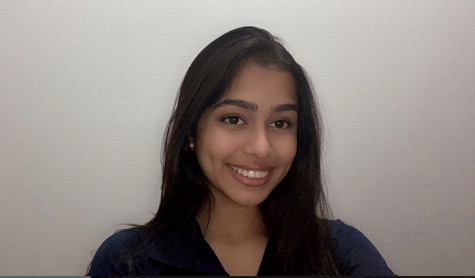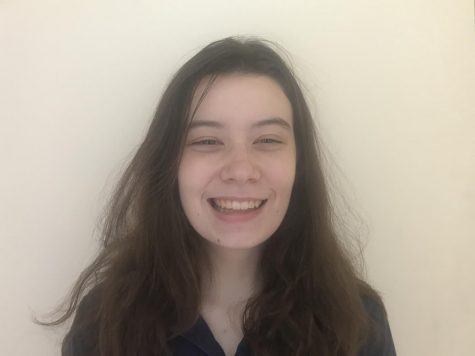When a few students from the Class of 2017 were freshmen, they approached Chief Information Officer Jeff Ritter about sponsoring a new club, Young Conservatives Club, knowing that he was one of the few conservative teachers on campus.
Five years later, YCC and its counterpart, the Young Liberals Organization, are working to encourage political discussion among students in the Upper School, despite the often divisive nature of the subject.
“Believe it or not, one of my favorite parts of being in YCC is being able to speak openly with people who I disagree with,” sophomore Owen Butler said. “[Political clubs] let students speak their minds and look at issues from different angles.”
Pod on the Quad is the Review’s podcast that covers happenings around school. Sophia Kontos is the host, editor and producer of the series. The music is by Ben Sound. The logo was designed by Amélie Perrier and Siena Zerr. In this podcast, Online Editor-in-Chief Sophia Kontos speaks with YCC officer Daniel Neuhaus and YLO co-chair Sophie Gillard. Illustrations by Celine Huang.
The primary objective of both clubs is to provide students with opportunities to dissect and debate current events. YLO has hosted meetings centered around issues such as net neutrality and immigration. In addition to forums, the club introduces students to campaign volunteer opportunities and educates students on topics like voting.
“Just doing research on the internet isn’t a better way of learning than going out and talking to people,” senior YLO officer Sebastian Varma said. “We have a lot of our members who are volunteering with candidates like Lizzie Fletcher and Beto.”
The two clubs have occasionally combined their efforts. Back on March 23, the Young Political Organization, comprised of representatives from both YCC and YLO, organized a student walkout in protest of gun violence. This year, students from YCC and YLO participated in a debate on Oct. 11 regarding whether or not the electoral college should be abolished.
The political clubs highlight the broader political climate on campus. According to Ritter, the prevalence of differing views among members of the Upper School makes it particularly important to emphasize listening when it comes to politics.
“In this day and age when people on [opposite sides of] the political spectrum don’t listen to each other, if we can foster a sense of listening to each other, then hopefully that will carry through and rub off on other people,” Ritter said. “We can begin to start changing the political atmosphere in the country a little bit.”
The nonpartisan student group St. John’s Political Education Club aims to accomplish a similar goal, cultivating an environment in which students feel safe to share their views without judgement.
Senior SPEC co-president Jackson Edwards said that in the aftermath of the 2016 presidential election, he and co-president Jack Trent saw a need for “substantive” political discussion among students, regardless of political ideologies. As a result, they founded SPEC, where they hope students feel comfortable debating and discussing politics with the purpose of learning, not winning.
According to Trent, students are hesitant to talk about politics and tend to generalize the political beliefs of others based on party affiliation.
“If you’re labeled as a Republican, people will think that you’re pro-gun and pro-life,” Trent said, adding that that most people do not agree with their party on everything. “It’s hard to escape the idea that if I say I’m pro-gun in a debate, people will assume I’m conservative on every issue.”
In keeping with the educational aspect of their club, SPEC has hosted speakers ranging from Mayor Sylvester Turner in October last year to Texas Supreme Court Justice Jeff Brown on Oct. 23.
Even with increasing options for safe political discourse at a student level, Edwards said that some students still feel discouraged from sharing their views.
“A lot of students say they are concerned with being judged not only by their peers but also by their teachers,” Edwards said. “Although I’ve heard this complaint a lot, I can say with absolute certainty that the teachers at St. John’s appreciate — and often encourage — different political philosophies.”
In Ritter’s experience, the topic of politics can be problematic among faculty as well, and individuals with right-leaning opinions are sometimes viewed as second-best. With the hiring of Director of Community and Inclusion Gene Batiste, Ritter hopes that this will change.
Batiste has been working with faculty for the last two years and also spoke with Unity Council regarding the facilitation of difficult conversations by using several models of active listening to promote respect amid these discussions.
“We’re not getting good modeling from adults at the state and national levels when it comes to civil discourse and civility even though we have different political and cultural opinions,” Batiste said. “At the same time, because of what’s happening right now in our city, state and nation, we need ongoing training on how to engage in difficult conversations in a in a civil way.”
According to Batiste, political clubs should market themselves broadly in order to communicate with the whole student body while fostering inclusivity in their choice of subject matter. Voting and political involvement are vital for students and can impact elections.
“It’s important for our political clubs to remind themselves of the reason why they exist and to follow their rules of engagement as we approach Nov. 6,” Batiste said. “I hope they think of the midterms as short-term, but at the same time, think of the long-term impact that the effects that the midterms will have.”
Return to package.


